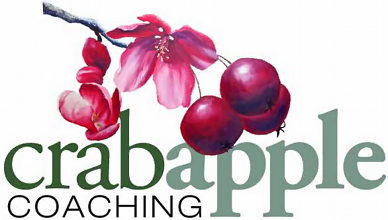 Retirement Stats, Studies, and Stuff
Retirement Stats, Studies, and Stuff
Guest Writer: Kathy Underwood
Kathy Underwood is an ordained minister in the United Church of Canada, a mediator and consultant, and a spiritual care provider in a residential hospice as well as an outpatient Cancer Care Unit. Her background includes 25 years as registered physiotherapist and healthcare administration as well as extensive consulting work in the health, social services and faith-based sectors. To protect confidentiality, all the stories that follow are composites of many individuals’ stories.
There are few things more satisfying to me as spending time with people who are facing their own vulnerability and who allow me to accompany them for a while. As a spiritual care provider, it is my privilege to hear the stories people share and to respond with questions that help them to consider the deeper meanings underlying their concerns, their fears and their hopes. In turn, I have discovered my own deep-seated vulnerabilities, fears and hopes. This has given me the opportunity to address them proactively before I face the threat of serious illness or my own mortality – a tremendous gift to me and to those around me. These are some of the insights I have gleaned:
What does it mean to be productive?
Louise is a 64-year-old woman who has been active all her life. She retired as a successful business owner one year ago and was looking forward to pursuing her lifelong passions of golfing, photography, and downhill skiing. Shortly after her retirement she was diagnosed with a form of leukemia which has robbed her of her energy and her previously-boundless passion for life. We talked at length one day about how we define ourselves. Louise was clear her identity had always been focused on her capacity to be productive and successful. Even her stress management activities had been practiced at an elite level where others could see her competence as a golfer, a downhill skier and photographer. Now she saw no competence and no capacity when she considered her life. Although she maintained a strong fighting attitude toward her disease, she spoke judgmentally and hopelessly about her current self.
Our talks together focused on achieving a new understanding of competence, capacity, and productivity. Can I be flexible and compassionate enough with myself to see my new ‘work’ as being as healthy as I can be, regardless of my limitations? Can I see this flexibility and adjustment to limitations as being a sign of my competence? Can I prioritize becoming competent in knowing how and when to ask for help?
My time spent with Louise and many others facing similar physical limitations is helping me to revisit my own understanding of who I am and what makes my life worthwhile. I am becoming much more compassionate with myself and others regarding productivity and success. This compassion is helping me to face my own limitations with an attitude that doesn’t take away from my goal-focused, outcome-oriented approach, but that allows space for seeing goals and outcomes in a much broader context. And in so doing, creates a much larger space for hope.
What do I do about ‘unfinished business?’
Roberto was a youthful, active 72-year-old man who had started and sold a number of successful businesses over the course of his career. He travelled extensively for fun and business and continued to be active in his most recent business venture as a consulting partner. I got to know Roberto when he admitted himself to the residential hospice for end-of-life care. As we got to know each other, Roberto began to share some of the more difficult aspects of his life, specifically, his estrangement from his three children. He had not spoken to any of them for more than twenty years although he knew where they lived and some of the circumstances of their lives. His ex-wife, the mother of the now-adult children, had been in touch with Roberto a number of times to ask him to reconnect, but he had resisted out of deep anger and hurt over the original conflict. It was only now, as he faced his own imminent death, that Roberto had the time and the ability to reflect on his life and his unfinished business. The eventual reunion with two of his three children prior to Roberto’s death was filled with tears, expressions of regret, reconciliation, and blessings for each one’s future. And it was tinged with sadness about the missing child who, for very valid reasons, could not accept Roberto’s pleas for a conversation prior to his death. Roberto’s story and many, many others like his, offers me a clear opportunity to address the conflicts in my life when it is easiest – when they happen, and when I am healthy and have capacity to do so – in other words, to live my life in a way that I can ‘finish well.’
How do I want my life to be celebrated?
Countless people who welcomed me into the last few weeks of their lives talked with me about what dying might be like. And almost always these conversations lead to ones about ‘how do you want your life to be celebrated?’ Many people told me, “I don’t want anything. It’s too much of a burden for my family. It’s too sad. I just want it to be over for me and for them.” There are many reasons for these comments – ghastly funerals that people have attended, the desire that “nobody see me like this,” a fear of having something that doesn’t accurately reflect their lives, and sometimes, the sense that their lives aren’t worthy of being acknowledged.
I’ve watched families, friends and partners go through extended periods of grief, in part, because there was no final good-bye, as is often made possible through a funeral or celebration of life or memorial or graveside service (and, no, I don’t work for a funeral home). I have seen the joy that a dying person can take from the planning of a final good-bye party, as they ponder their favourite music, their favourite flowers, and their favourite places and pictures. I have seen them write (or often dictate to me) letters to their children, partners, and friends, as these funeral conversations lead into others about gratitude and hopes for their loved ones’ futures. And over and over, I have seen families struggle through the sadness and find hope in the planning together of how to mark their beloved person’s life. As a result of these experiences, I have come to understand the importance of final good-byes, the joy of sharing in the planning, and the surprising experience of hope that emerges when we talk honestly with those we love.
These are just a few of the things I have learned in my conversations with people in hospice care. They may or may not resonate for you. Regardless, I hope they provoke conversations with you and those you love about what gives your life meaning, the challenges of unfinished business at every stage of our lives, and the importance of pursuing those awkward but hope-filled discussions about how to mark our lives. How shall I live this one marvelous moment that is mine right now?

Very touching, weeping into my morning porridge.
I’m just reading The Troubled Dream of Life: Living with Mortality by Daniel Callahan, Kathy. Although I haven’t gotten to his point yet, his book is already making me consider that I, and my culture, may have to give up that goal of absolute competence and continuing independence until death. We don’t fight the idea that we were dependent as babies and children, and some of us at least will face losing some or most of what we spent our lives valuing in ourselves.
Thank you for your thoughtful observations. There’s still the danger, even while reading you, of considering myself exempt.
Hi Helen,
thanks for your thoughtful response and for the reference to a book I haven’t yet read- will follow up on that. Your thoughts align with some important work done by Pamela McCarroll, Canadian psychotherapist, professor and pastoral theologian. The concepts of competence, mastery and independence are ones that are relatively recent developments in the history of humankind, particularly as held up as the “gold standard” for measuring a life. McCarroll draws on the work of George Grant (Canadian sociologist) and Douglas John Hall (Canadian theologian), to demonstrate that striving for independence as the ultimate goal sets all of us for ultimate failure as we age and die. Perhaps more importantly, though, holding independence and mastery up as ultimate goals fails to acknowledge that we are first and foremost relational beings. The replacement of relationality with independence and mastery leaves me alone in the most vulnerable moments of my life, unless I am somehow able to expand my focus from me-alone having mastery, to the “community mastery,” that is borne out by the people who gather around me in response to my decreasing mastery. Aging and dying, like living, are communal tasks. And if we can embrace that when we are well and healthy, it will change not only how we age and how we die, it will change how we live right now, how we treat others, and how we treat the earth on which we depend. Thanks again for your stimulating thoughts.
Excellent article! I really enjoyed thinking about all the marvelous moments in our lives!
Thank you…..
Thanks for your follow-up, Kathy. That notion of independence as non-relational and of the value instead of a mastery community is helpful indeed. Rather like Ann Boyer’s idea about death: “You can stop fearing death, too, if you begin to think of the collective project of being alive in the common world, that one’s own end and the end to one’s work and one’s love is not the end of what is right or good. What needs to go on will.” Thinking more communally helps, as we age.